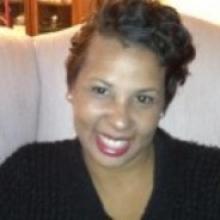Women's Herstory

A profound line resonates deeply within me in the powerful song "Ella's Song," beautifully performed by Sweet Honey in the Rock. It states, "I'm a woman who speaks in a voice, and I must be heard. At times, I can be quite difficult; I'll bow to no man's word. We who believe in freedom cannot rest. We who believe in freedom cannot rest until it comes."
As a certified educator who identifies as a black woman, I contribute my voice to those who have been historically marginalized and rendered voiceless--from individuals who have severe mental illnesses to my fellow sisters who have found themselves as the solitary presence at tables dominated by patriarchal, misogynistic, and colorless ideologies—both in everyday life and throughout their clinical pastoral education (CPE) journey.
I undertake this endeavor as an active member of the Anti-Ableism Task Force and the convener for the Womanist Approach to Care and Curriculum Community of Practice-- a sacred space for solace and support for all who have experienced being the "only" in their respective spheres. However, I also undertake this endeavor to give space for my reflection, where together, we, as my Nana, would say, "Come on to the table; there is enough to go around. Help yo-self."
As the lyrics so eloquently convey, I can't afford to rest until freedom is realized. Women's History/HERstory is a time to celebrate trailblazers, but it is also a time to remember the fight is not over. We must acknowledge the ongoing struggles and inequalities that persist. We must uplift voices stifled for far too long to pave the way for a more inclusive and equitable future. Until there is freedom, dear stifled voice, speak, be difficult, be heard.
Lauri Swann, ACPE Certified Educator
